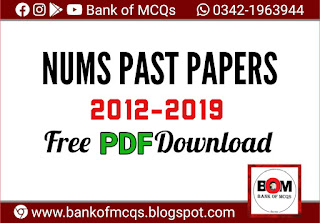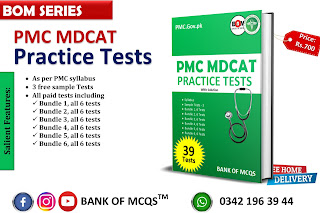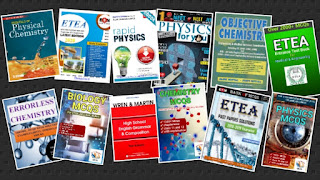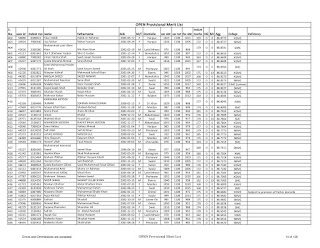Chap.18 Chemical coordination
|
1. |
|
|
|
2. |
Chemically hormones are amino acids, protein,polypeptide
or: (a)
Fat (b)
Carbohydrate (c)
Lipid (d) Steroid |
D |
|
3. |
Testosterone,
estrogen and progesterone are hormones of: (a)
Steroid nature (b) Amino acid
nature (c)
Protein nature (d) Polypeptide
nature |
A |
|
4. |
The
no. of ductless glands lying in different parts of the human body is: (a)
10 (b) 15 (c)
20 (d) 25 |
C |
|
5. |
Pituitary
gland is pea sized, weighs 0.5 attached to hypothalamus by a stalk: (a)
Acetabulum (b)
Infundibulum (c)
Both a and b (d)
None of them |
B |
|
6. |
Over
secretion of growth hormones during childhood resulted in: (a)
Acromegaly (b) Gigantism (c)
Goiter (d) Myxedema |
B |
|
7. |
Menstrual
cycle in lactating mother is inhibited by: (a)
Progesteron (b)
Estrogen (C)
Oxytocin (d) Prolactin |
D |
|
8. |
Diuresis
is concerned with (a)
ACTH (b) FSH (C)
ADH (d) LH |
C |
|
9. |
The
hormone which facilitates parturition is: (a)
LH (b)
Progesteron (c)
FSH (d)
Oxytocin |
D |
|
10. |
T3 and T4 are hormones secreted by: (a)
Parathyroid Gland (b) Pituitary Gland (c)
Thyroid Gland (d) Both a and c |
C |
|
11. |
Exophthalmia
and graves disease are concerned with: (a)
Hyperthyroidism (b) Hypothyroidism (C)
T3 (d) T4 |
A |
|
12. |
Insufficient
secretion by the thyroid gland at infancy gives rise to a dwarfed condition,
the:. (a)
Goiter (b) Gigantism (c)
Cretinism (d) Myxedema |
C |
|
13. |
The
islets of Langerhans is endocrine tissue situated within: (a)
Adrenal Cortex (b) Adrenal Medulla (c)
Pancreas (d) Testes |
C |
|
14. |
The normal blood glucose level is: (a)
40 mg/100 cm (b) 50 mg/100 cm (c)
60 mg 100 cm (d) 70 mg/100 cm |
D |
|
15. |
Insulin tends to: (a)
Decline blood glucose level (b)
Accelerate conversion of glucose to glycogen (c)
Both a and b (d)
None of these |
C |
|
16. |
The
adrenal glands are located adjacent to: (a)
Larynx (b) Urinary ©
Kidney (d) Gonads |
C |
|
17. |
All
of the following are secretions of adrenal gland except: (a)
Cortisone (b) Adrenaline (c)
Oxytocin (d)
Noradrenaline |
C |
|
18. |
The
principal androgen is: (a)
Testosterone (b)
Progesterone (c)
Vasopressin Hormone (d)
Lactogenic Hormone |
A |
|
19. |
Diabetes insipidus is caused due to under: (a)
FSH (b)
LH (c)
LTH (d) ADH |
D |
|
20. |
The
word hormone (literally means to excite or arouse or set in motion was
suggested in 1905 by: (a)
Morgan (b) Mendel (c)
Starling (d) Sutton |
C |
|
21. |
First
hormone to be discovered in: (a)
Thyroxi (b) Vasopressin (C)
Secretin (d) Insulin |
C |
|
22. |
Which
of the following hormones are involved. in biorhythms? (a)
Oxytocin (b) Melatonin (c)
Parathormone (d) Calcitonin |
B |
|
23. |
Human
growth hormone: (a)
Raises blood sugar Level (b)
Stimulates the ovaries (c)
Stimulates growth of long bones (d)
Stimulates thyroid glands |
C |
|
24. |
All of the following are correct about the endocrine
system except: (a)
Endocrine Glands are Ductless (b)
Parathormone is the Fight or Flight Hormone (c)
The Islet Cells in the Pancreas Produce both Glucagon and Insulin (d)
Polypeptide Hormones Must Bind 10 a Receptor and Trigger a Secondary Messenger |
B |
|
25. |
All
of the following hormones are produced by the anterior pituitary except: (a)
Glucagon (b)
Follicle Stimulating Hormone (C)
Human Growth Hormone (d)
Thyroid Stimulating Hormone |
A |
|
26. |
First
crystalline hormone is: (a)
Antidiuretic Hormone (b)
Thyroxin (c)
Glucagon (d)
Estrogen |
B |
|
27. |
Tropic
hormones: (a)
Are secreted by the thyroid (b)
Are secreted by the liver (c)
Are released by the hypothalamus (d)
Are hormones that stimulate other glands |
D |
|
28. |
Which one of the following conditions is resulted
from excess GH in adults? (a)
Cushing's Syndrome (b)
Acromegaly (c)
Hyperthyroidism (d)
Diabetes Mellitus |
B |
|
29. |
…….
regulates the kidneys retention of water (a)
Prolactin (b) Oxytocin (C)
Thyroxine (d) Vasopressin |
D |
|
30. |
Parathyroid hormone acts to ensure that: (a)
Calcium levels in the blood never drops (b)
Sodium levels in urine are constant (C)
Potassium levels in the blood don't escalate (d)
The concentration of water in the blood is sufficient |
A |
|
31. |
The
adrenal cortex produces: (a)Adrenaline. (b) Calcitonin (c)
Epinephrine (d)
Aldosterone |
D |
|
32. |
Oxytocin is secreted by the endocrine gland
name: (a)
Pituitary Gland (b) Thyroid Gland (c)
Pituitary Gland (d) Adrenal Gland |
A |
|
33. |
The
one which is not related to the others is: (a)
Cretinism (b) Myxoedema (c)
Exophthalmic Goitre(d) Diabetes Mellitus |
D |
|
34. |
Child
birth is an example of: a)
Negative Feedback Mechanism (b)
Positive Feedback Mechanism (c)
Both of These (d)
Not Related to Feedback Mechanism |
B |
|
35. |
Which
of the following hormone is used clinically as a heart stimulant and to
dilate the bronchioles during acute asthmatic attack? (a)
Oxytocin (b) Insulin (c)
Epinephrine (d)
Testosterone |
C |
|
36. |
Undersecretion
of the adrenal cortex hormones results in a condition known as: (a)
Cushing's Syndrome (b)
Addison's Disease (c)
Parkinson's Disease (d)
Myxoedema |
B |
|
37. |
Glucagon
is produced by……cells of the islets of langerhans. (a)
Alpha Cells (b) Beta Cells (c)
Delta Cells (d) F-Cells |
A |
|
38. |
A condition of excessive thirst is known as: (a)
Polyuria (b) Polydipsia (c)
Polyphagia (d)
Pyelonephritis |
B |
|
39. |
Weight of pituitary gland in human is: (a)
100mg (b) 15mg (c)
200mg (d) 500mg |
D |
|
40. |
The
largest endocrine gland is: (a)
Pituitary Gland (b) Thyroid Gland (c)
Parathyroid Gland (d) Pineal Gland |
B |
|
41. |
The
normal blood glucose level is between:. (a)
10 to 100 mg/100 ml (b)
20 to 90/100ml (c)
30 to 80 mg/100ml (d)
63 to 144 mg/100ml |
D |
|
42. |
When excess glucose begins to be lost from
the body in the urine, this condition is called: (a)
Glycosuri (b)
Hypoglycemia (c)
Hyperglycemia (d) Hypercalcemia |
A |
|
43. |
Undersecretion
of parathormone causes: (a)
Hypercalcemia (b) Hypocalcemia (C)
Diabetes mellitus (d) Polyuria |
B |
|
44. |
Calcitonin
stimulates: (a)
Calcium deposition in bones (b)
Inhibition of Ca absorption by the intestine (c)
Reduction of Ca and K reabsorption in kidney tubules (d)
All of these |
D |
|
45. |
Hypothyroidism
in children results in a condition known as: (a)
Exophthalmic Goiter (b)
Myxoedema (c)
Cretinism (d) Goiter |
C |
|
46. |
Grave's disease results from: (a)
Hypothyroidism (b) Hyperthyroidism (c)
Hypoparathyroidism(d) Hyperparathyroidism |
|
|
47. |
Myxoedema means: (a)
Mental Retardation (b) Eye Protrusion (0)
Mucous Swelling (d) High Metabolism |
C |
|
48. |
Thyroid
gland has a weight of about: (a)
2g (b) 12g (c)
25g (d) 40g |
C |
|
49. |
In
lactating women, the letdown reflex or milk ejection reflex is set off by: (a)
Prolactin (b)
Luteinizing Hormone (c)
Oxytocin (d) Insulin |
C |
|
50. |
Hormones in our body are the substances which
are: (a)
Secreted in restricted areas and influence the activities of various parts of
the body (b)
Secreted in various parts of the body but have activity in limited area (c)
Secreted only in the animals but not in plants (d)
None of these. |
A |
|
51. |
Study
of endocrine glands and their secretions is called: (a)
Pathology (b) Gerontology (c)
Toxicology (d) Endocrinology |
D |
|
52. |
Hormones differ from enzymes in the respect that
they (a)
Are found only in animals (b)
Are found only in plants (c)
Are used completely in metabolism (d)
Are not used up in metabolism |
C |
|
53. |
Solute
concentration in the blood is monitored by osmoreceptors in: (a)
Thalamus (b) Cerebrum (c)
Blood Vessels (d) Hypothalamus |
D |
|
54. |
Melanocyte
stimulating hormone is produced by: (a)
Anterior lobe of pituitary gland (b)
Posterior lobe of pituitary gland (c)
Intermediate lobe of pituitary gland (d)
Thyroid gland |
C |
|
55. |
In
male, luteinizing hormone is also known as: (a)
Prolactin (b)
Progesterone (c)
Interstitial Cell Stimulating Hormone (d)
Oxytocin |
C |
|
56. |
Hypothalamus releases all except: (a)
Thyroid Stimulating Hormone (b)
Thyrotropin Releasing Factor (c)
Gonadotrophin Releasing Hormone (d)
Adrenocorticotropin Releasing Factor |
D |
|
57. |
Androgens
are secreted by: (a)
Ovaries (b) Thyroid
Glands (c)
Testes (d) Pituitary
Glands |
C |








Comments
Post a Comment